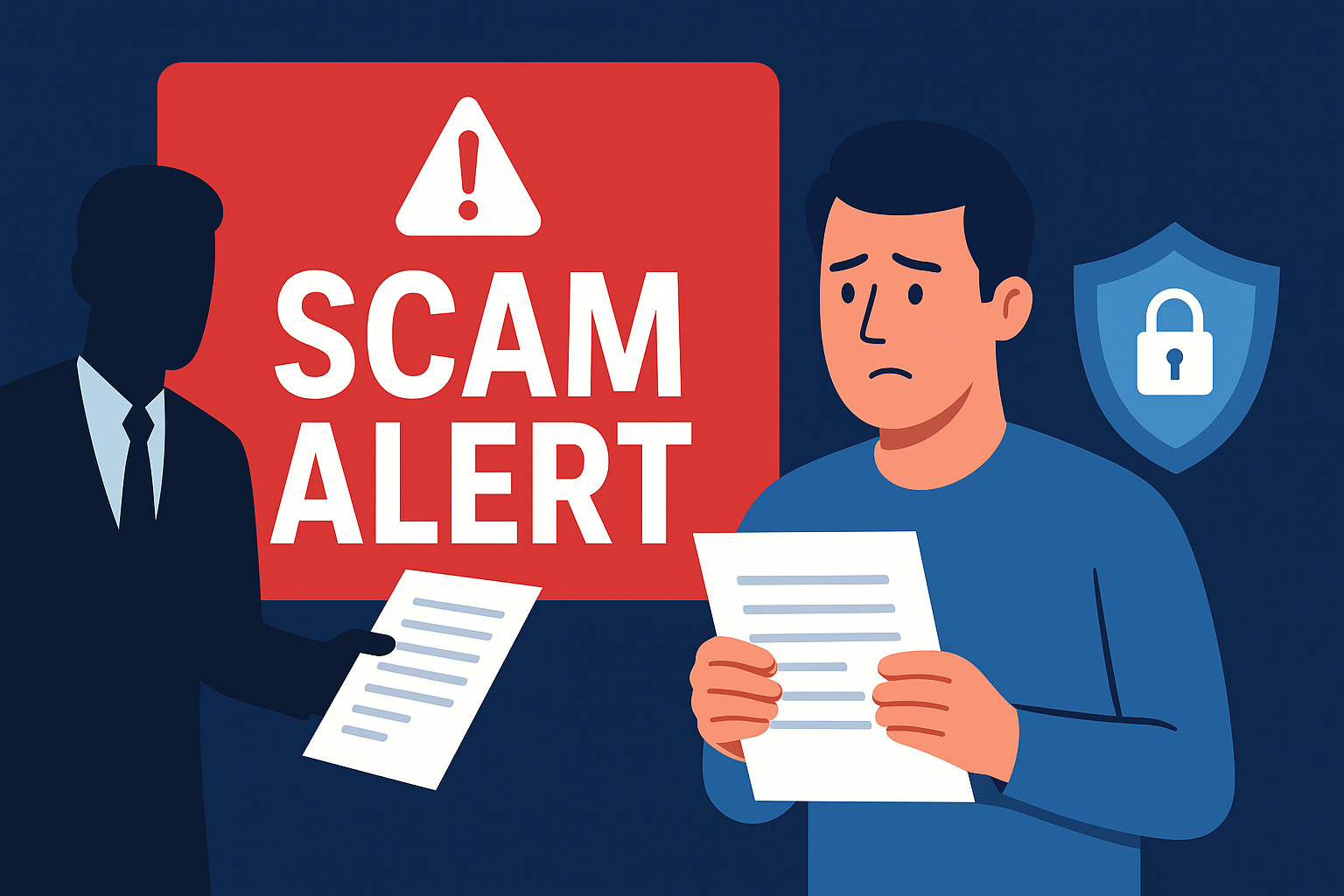Structured settlement annuities are meant to provide long-term financial security after a legal settlement, accident, or injury case. For many individuals, these regular payments ensure stability and a predictable income stream. However, because structured settlements often involve large sums of money, they can become prime targets for scammers and dishonest companies looking to take advantage of unsuspecting sellers.

In recent years, fraudulent practices in the structured settlement industry have been on the rise. From fake buyers promising unrealistic lump sums to predatory contracts hidden with legal loopholes, the risks are greater than ever in 2025. Victims of such scams not only lose a portion of their settlement value but may also face long-term financial struggles that cannot be reversed.
In this article, we will highlight the top 10 structured settlement annuity scams you should watch out for in 2025, explain how these scams work, and provide actionable tips on how to protect yourself. Whether you are thinking about selling your payments or simply want to be more informed, this guide will help you avoid costly mistakes and safeguard your financial future.
1. Fake Buyer Scam
One of the most common scams involves fake companies or individuals posing as legitimate structured settlement buyers. They often use polished websites, fake testimonials, and professional-sounding names to gain your trust. Once you sign over your rights, they disappear with your money or provide only a fraction of the promised payment.
How to protect yourself:
- Always verify the company’s licensing and BBB (Better Business Bureau) record.
- Avoid companies that refuse to provide clear contracts or references.
2. “Too Good to Be True” Offers
If a buyer promises you significantly more money than competitors, be cautious. Scammers lure sellers with unrealistic offers, then reduce the payment at the last minute with hidden fees or vague “processing costs.”
How to protect yourself:
- Compare offers from multiple legitimate buyers.
- Read the fine print carefully.
3. Upfront Fee Fraud
Some scammers demand an upfront payment to “process” or “approve” your settlement sale. In reality, no legitimate structured settlement company should charge sellers upfront.
How to protect yourself:
- Never pay upfront fees.
- Work only with buyers that deduct fees from the final transaction, not before.
4. Identity Theft Scams
Fraudulent companies may request unnecessary personal documents like Social Security numbers, banking details, or medical records, which they later use for identity theft.
How to protect yourself:
- Only share sensitive information with trusted, verified companies.
- Watch for phishing emails or unsecure websites.
5. Unauthorized Contract Alterations
In some cases, scammers alter your signed contracts by adding new clauses or changing terms without your knowledge.
How to protect yourself:
- Always keep a signed copy of the original contract.
- Consider hiring a lawyer to review the paperwork.
6. High-Pressure Tactics
Scammers may pressure you into rushing the sale, saying things like “This deal is only available today.” Urgency is a classic scam tactic.
How to protect yourself:
- Take your time to review the contract.
- Never sign under pressure.
7. Court Approval Manipulation
Since structured settlement sales require court approval, scammers sometimes forge documents or bribe officials to push illegal deals.
How to protect yourself:
- Attend court hearings personally.
- Request official stamped documents.
8. False Legal Representation
Fraudulent “lawyers” or “advisors” may approach you, claiming they can negotiate better terms. In reality, they take a large portion of your payment as a hidden fee.
How to protect yourself:
- Verify the credentials of any legal representative.
- Avoid anyone who refuses to put terms in writing.
9. Hidden Fee Structures
Even legitimate buyers may attempt to bury excessive fees in contracts. These include “administrative fees,” “transfer fees,” or “special processing charges.”
How to protect yourself:
- Ask for a full breakdown of fees upfront.
- Compare industry averages before agreeing.
10. Offshore Investment Fraud
Some scammers trick sellers into transferring their settlement money to offshore “investment opportunities.” Once the money is sent, it becomes nearly impossible to recover.
How to protect yourself:
- Avoid transferring funds overseas.
- Stick with established U.S.-based buyers regulated by law.
Structured settlement annuities can be a safe and valuable asset, but scammers are constantly looking for new ways to exploit individuals in vulnerable financial positions. By learning about these 10 common scams in 2025, you can protect yourself and ensure that your settlement provides the financial security it was meant to deliver.
Always remember the golden rule: if an offer sounds too good to be true, it probably is. Take the time to research buyers, consult legal experts, and verify all documents before making any decisions. Selling a structured settlement is a major financial step, and rushing into a deal without due diligence could cost you far more than money—it could cost you peace of mind.
Protect yourself, stay informed, and only work with trusted companies that prioritize transparency and fairness. By staying vigilant, you can safely navigate the structured settlement market in 2025.